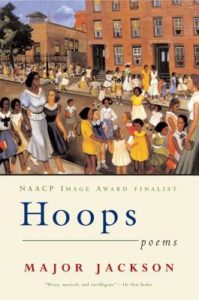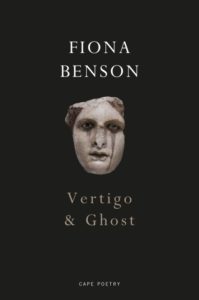How a Poem Ends Up As a Basketball Epic
The Books That Helped Inua Ellams Write The Half-God of Rainfall
Demi, the boy at the center of my epic story, The Half-God of Rainfall, is an immigrant. He discovers the game of basketball at an early age and it is the vehicle that transports him across the world, from the tiny grassy patches of his village in southwest Nigeria, to the Oracle Arena in California, to the 2012 Olympics in the United Kingdom, and eventually to Mount Olympus itself.
It was never meant to be that epic. I intended to write a simple little poem about a kid who could do the things I never could on the court. I wanted to bestow him with superhuman abilities in order to achieve that, so I reached for a Godfather for him, for Zeus. That little imaginative impulse changed everything.
The Half God of Rainfall challenged and pushed me to have difficult conversations, and I was grateful to have the following texts as guideposts: basketball narratives that captured the power the game holds over so many, and all technically brilliant and inventive examples of storytelling. They supported, questioned and illuminated my past as I wrote.
*
The first poem in this collection, “Selling Out,” remains one of the finest I have ever read. I still sweat at how precisely he captures the beautiful game and how perfectly he pins down its music, speed, funk, joy, drama and culture. It humbled me that such a thing, such art, was possible. As my story grew, I returned over and over to Major Jackson, learning from and figuring out how to pin my self down.
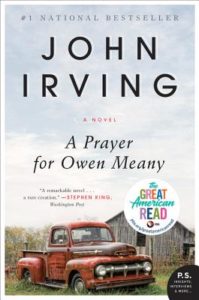
John Irving, A Prayer for Owen Meany
(William Morrow & Company)
I began searching for novels about basketball and when this was recommended, I wasn’t aware of its cult status. The story centers on a small, skinny boy called Owen Meany, who in stature is similar to Demi in The Half-God of Rainfall. The novel is rich, dense and meditative in its exploration of religion, friendship, America and the legacy of the Vietnam War. Throughout the story, Owen practices a basketball move that is only used once, and in the most devastating and improbable way.
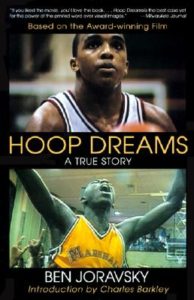
Ben Joravsky, Hoop Dreams
(It Books)
Quite a lot of film fans think, as I do, that the first incarnation of this project, a documentary of the same title, was robbed of an Academy Award. I discovered it almost twenty years later and found myself connecting with the protagonists Arthur Agee and William Gates. In the book adaption, Ben Joravsky gives space for their mothers Sheila and Emma, to speak; in doing so, he expands the story into a family saga about the American sporting dream and the emotional weight that it bears on Black women.
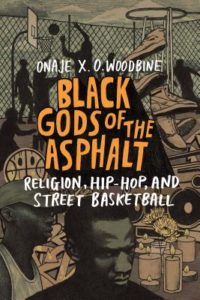
Onaje X. O. Woodbine, Black Gods of The Asphalt
(Columbia University Press)
Basketball is as much a religion as any other sport. To follow a team, to believe they will win, to will them towards victory, to chant their names as they ready for a shot, requires faith, belief without proof, a kind of religious fervor. This book is a grounded and groundbreaking testament to street basketball, to players who cross over into the mythic as they conjure their fathers and grandfathers, ghosts of their dead onto the court. As they play, they are in communication and communion with those that have lost. Written by former streetball player and all-star Ivy Leaguer, Onaje X. O. Woodbine, Black Gods demonstrates how every ballplayer has a story, and he brings the sights and sounds, hopes and dreams of street basketball to life.
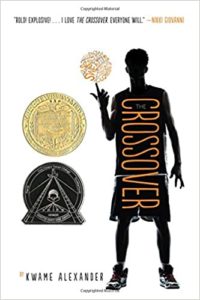
Kwame Alexander, The Crossover
(Houghton Mifflin)
Whereas Black Gods of the Asphalt focuses on adults, this awarding verse-novel by Kwame Alexander focuses on young ball players Josh and Jordan Bell. In many ways, it is a classic coming-of-age-story, blending sports, family, basketball, and hip hop lyricism with staggering simplicity. Kwame is a master storyteller here, and after reading it, I went back to my draft again, wondering how I could add some of the fluidity, energy and fluency Alexander displayed in his story.
Fiona Benson, Vertigo & Ghost
(Jonathan Cape Imprint)
Fiona Benson’s magnificent book-length poetry begins with “Ace Of Bass,” a poem about young women on a tennis court awakening to their sexuality, and is followed by 30 poems that portray Zeus as a serial sexual offender. It is wonderful, dark, and intense, and the collection won The Forward Prize for Best Collection and the Roehampton Prize for Poetry in 2019.
__________________________________
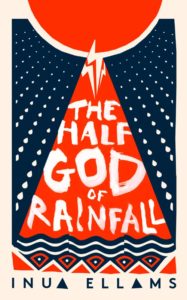
The Half-God of Rainfall by Inua Ellams is available via Harper 360.


